
Making a mark on the global stage
Velocity founders navigate opportunities at Collision

Velocity founders navigate opportunities at Collision
By Naomi Grosman VelocityDozens of Velocity founders showcased their innovative businesses and technologies to a global audience at the recent Collision conference in Toronto.
The tech conference brings together investors, government and major brands, while giving startups global networking and business-building opportunities.
Luke Young, co-founder and CEO of cleantech company Alora, explained it’s never too early for a company to attend conferences, and Collision is a chance to open up to global markets and governments that otherwise would be difficult to access.
“From learning and being exposed to different technologies ... you can bring [that] back and fold it into your company, it’s just going to make things faster, smoother and far more relevant than if you were to stay at home,” Young said.
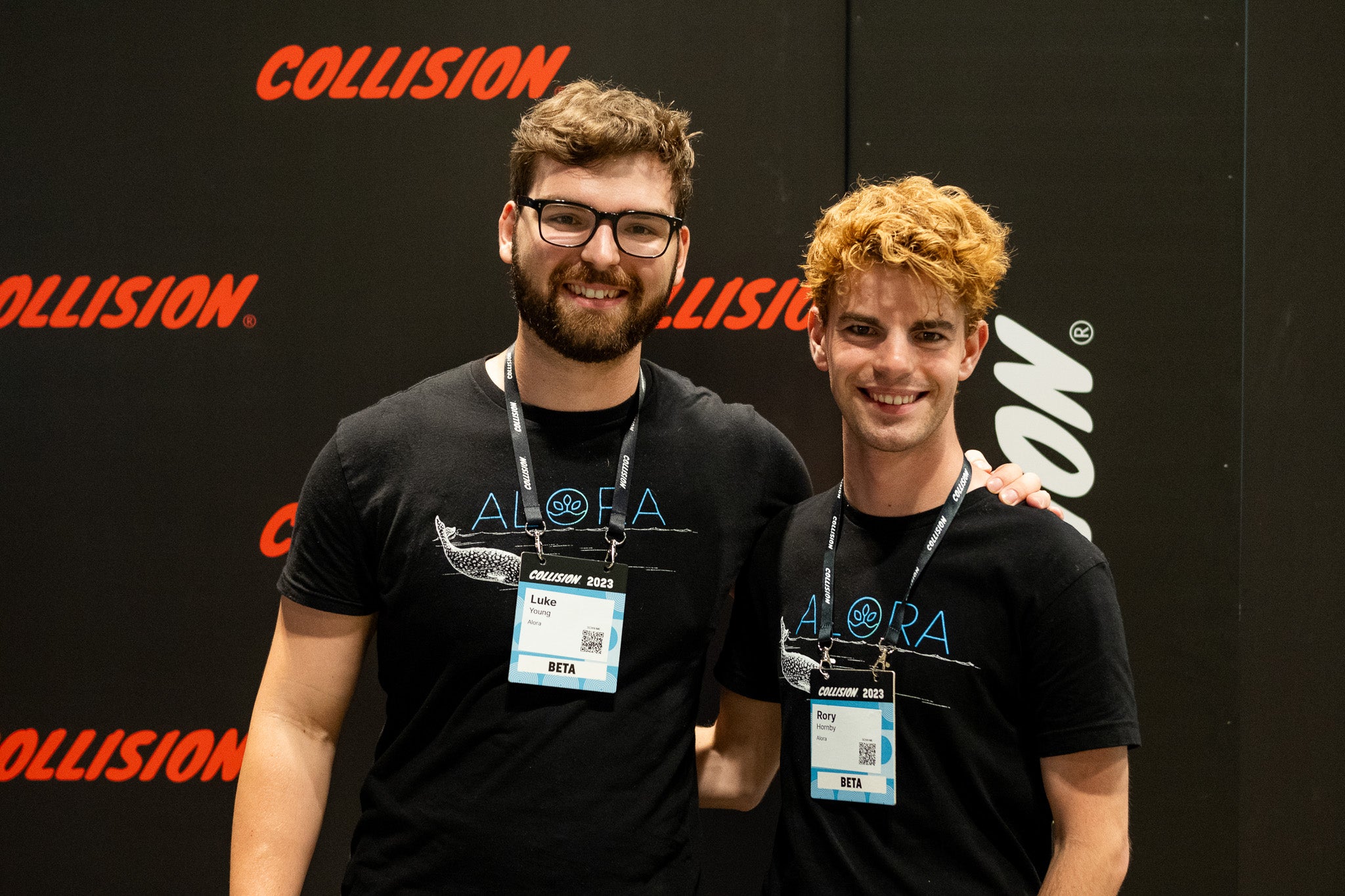
Luke Young and Rory Hornby, co-founders of cleantech company Alora, at the Collision conference.
Operating out of Velocity in downtown Kitchener, Alora is improving global food accessibility by developing salt-tolerant crops that can grow in environments suffering from freshwater scarcity and fertility issues. The company was established in the U.K. and found its way to Velocity by way of a startup accelerator in San Franscico.
Alora’s co-founder and chief science officer, Rory Hornby, said Velocity’s approach to helping startups be effective at conferences and presenting to stakeholders is unique.
“[At Velocity] there’s a focus on building a product that you can proudly go on stage and talk about because you are working on it day in and day out,” Hornby added. “Velocity provides [the resources] to safely build that and talk about the great product you are building.”
He said that a conference like Collision can help startups be more forward thinking to look beyond the next milestone.
“Not just by talking to other founders or investors but seeing how investors talk to each other — all of that is incredibly useful and something that shouldn’t be overlooked, especially at the early stages of the company.”
As a first-time attendee at Collision, Metacycler BioInnovations had a booth and presented in a pitch-like event, where it was the company’s first opportunity to showcase their business to a global audience.
“I’m excited about expanding our network beyond biotechnology and the local [start-up ecosystem],” said Eugenia Dadzie, co-founder and PhD candidate in microbiology. “We talked to people from many different countries and our grasp is reaching beyond Canada."
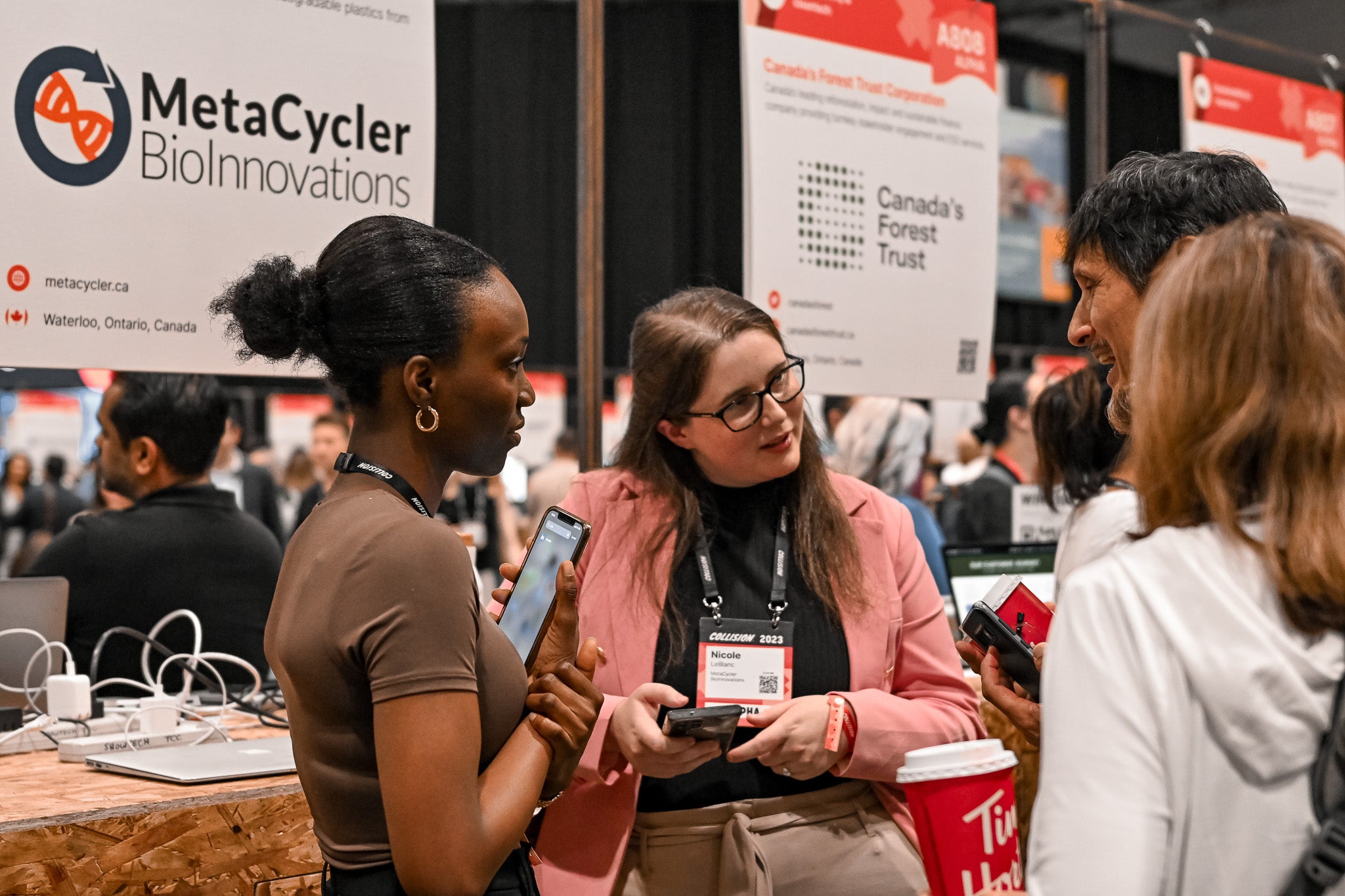
Eugenia Dadzie and Nicole LeBlanc, co-founders of Metacycler Bioinnovations at the Collision conference.
Metacycler Bioinnovations is transforming organic food waste into biodegradable plastics. The team is working with Velocity on campus and was one of four winners of Velocity’s $5K pitch competition in March.
Co-founder Nicole LeBlanc, said guidance from Velocity helped prepare the team to have meaningful conversations at Collision.
“We’ve been connected with Velocity on campus and the incubator and have learned how to talk about our company,” LeBlanc explained, who is also a PhD candidate in microbiology. “Now, when we are having conversations, and talking about expanding our company to global markets, we’re able to communicate that effectively.”
Some Velocity founders had the opportunity to present on Collision’s main stage, including Sheida Shahi (PhD ‘22), co-founder and CEO of Adaptis.
She said the company has grown exponentially since attending Collision last year, when she and Aida Mollaei, co-founder and chief technology officer, had just founded the company and joined Velocity.
Since then, Adaptis, whose proprietary, artificial intelligence-driven software enables circularity in construction, has raised a pre-seed round, grown to a team of 22 and has staff working globally on decarbonization and circularity planning with customers in Canada, U.K. and the U.S.
Shahi said persistence is what helped the company push forward to find success. The co-founders first attended Collision last year when they were new to the ecosystem and just learning the ropes.
This year, the co-founders were invited to speak about circularity and construction on the main stage.
“It’s a full circle moment for us,” she said.
Shahi told the audience, “Look for a way because there is flexibility within the system and resources are available and I would encourage others to delve right in — if someone is looking for resources, they’ll find a way.”
Martin Basiri (MASc '13), former CEO of Velocity company ApplyBoard, also took to the main stage to announce his new company Passage and its $40 million pre-seed round milestone.
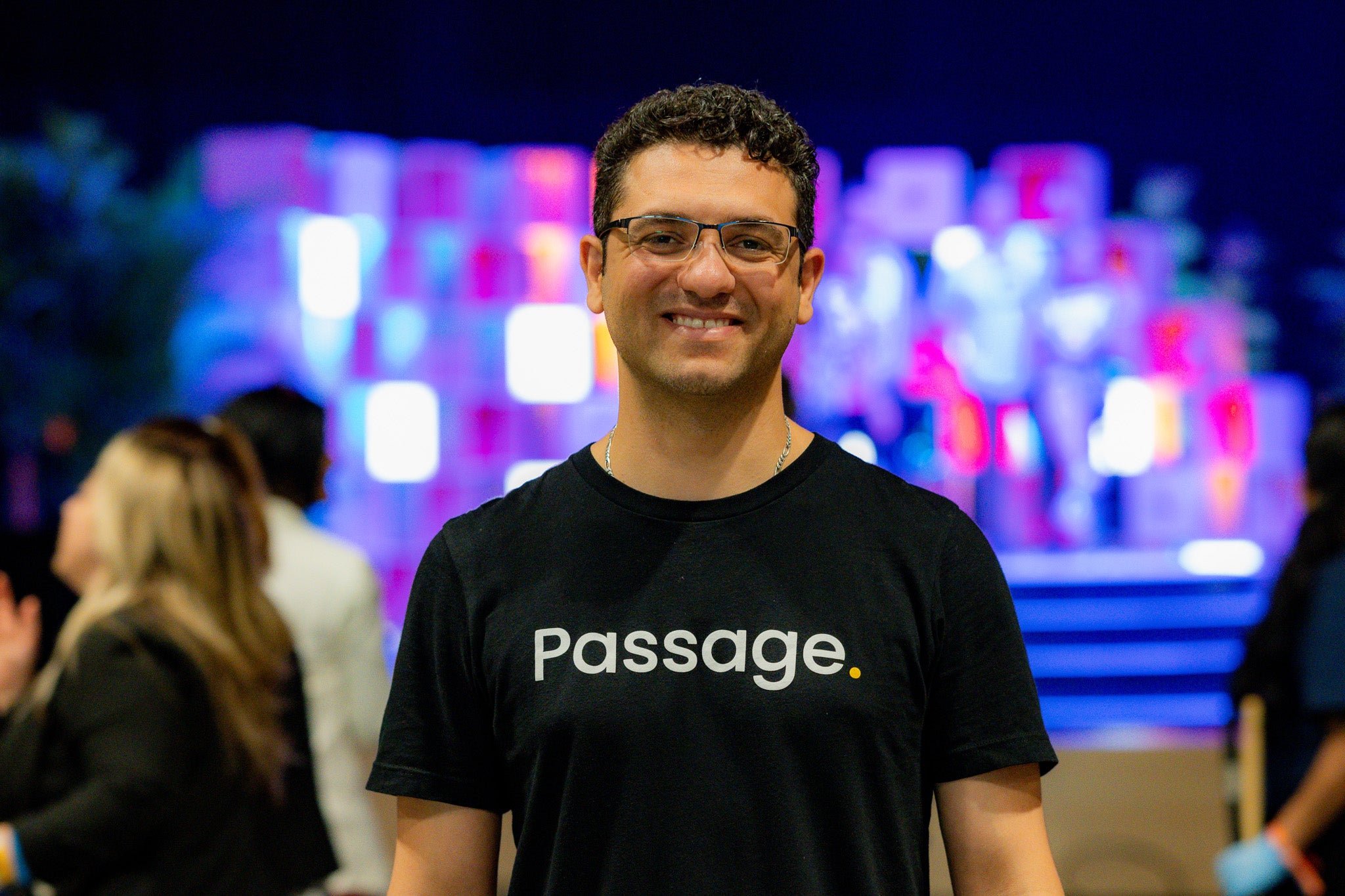
Martin Basiri (MASc '13), former CEO of Velocity company ApplyBoard and founder of Passage, at the Collision conference.
He said the idea for Passage, which aims to remove immigrants’ financial barriers and match with educational and career opportunities, was sparked during his time at ApplyBoard.
Basiri came to Canada from Iran through a University of Waterloo scholarship and started ApplyBoard at Velocity.
“[Velocity] helped us a lot, especially being around other entrepreneurs — there were always other founders at the Tannery that handled the same problems,” Basiri said. “I love that building and Waterloo in general, it changed my life. If the University of Waterloo hadn’t given me this opportunity to come to Canada, I wouldn’t be where I am today.”
Learn more about how startup founders can make the most of their time at conferences.
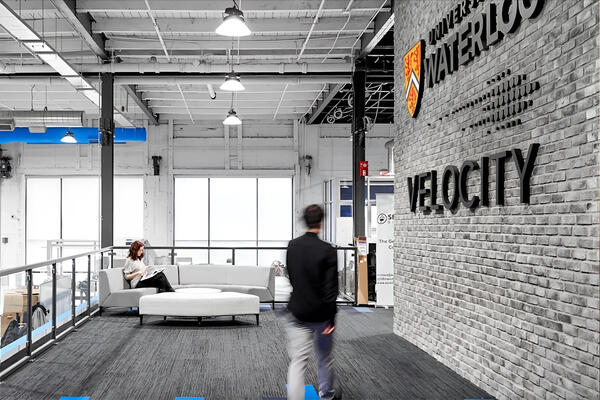
Read more
Velocity Fund II is a new, for-profit VC fund spun out of Waterloo’s Velocity incubator and operated independently
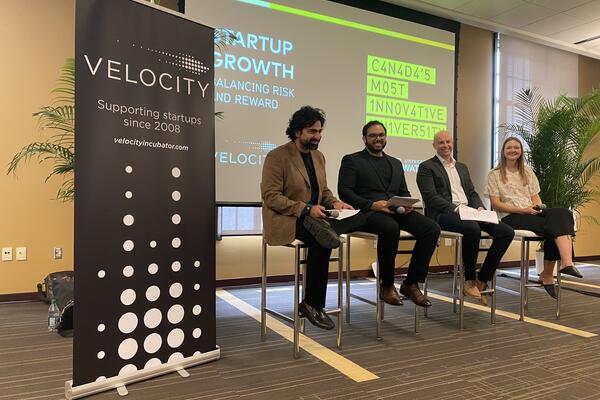
Read more
Experts from Velocity share insights on how to successfully grow a business at Collision

Read more
Waterloo hosts a masterclass at Collision on new approaches to responsible technology development
The University of Waterloo acknowledges that much of our work takes place on the traditional territory of the Neutral, Anishinaabeg, and Haudenosaunee peoples. Our main campus is situated on the Haldimand Tract, the land granted to the Six Nations that includes six miles on each side of the Grand River. Our active work toward reconciliation takes place across our campuses through research, learning, teaching, and community building, and is co-ordinated within the Office of Indigenous Relations.